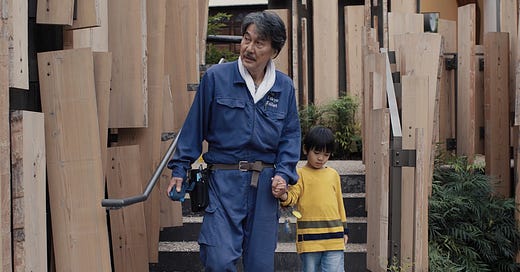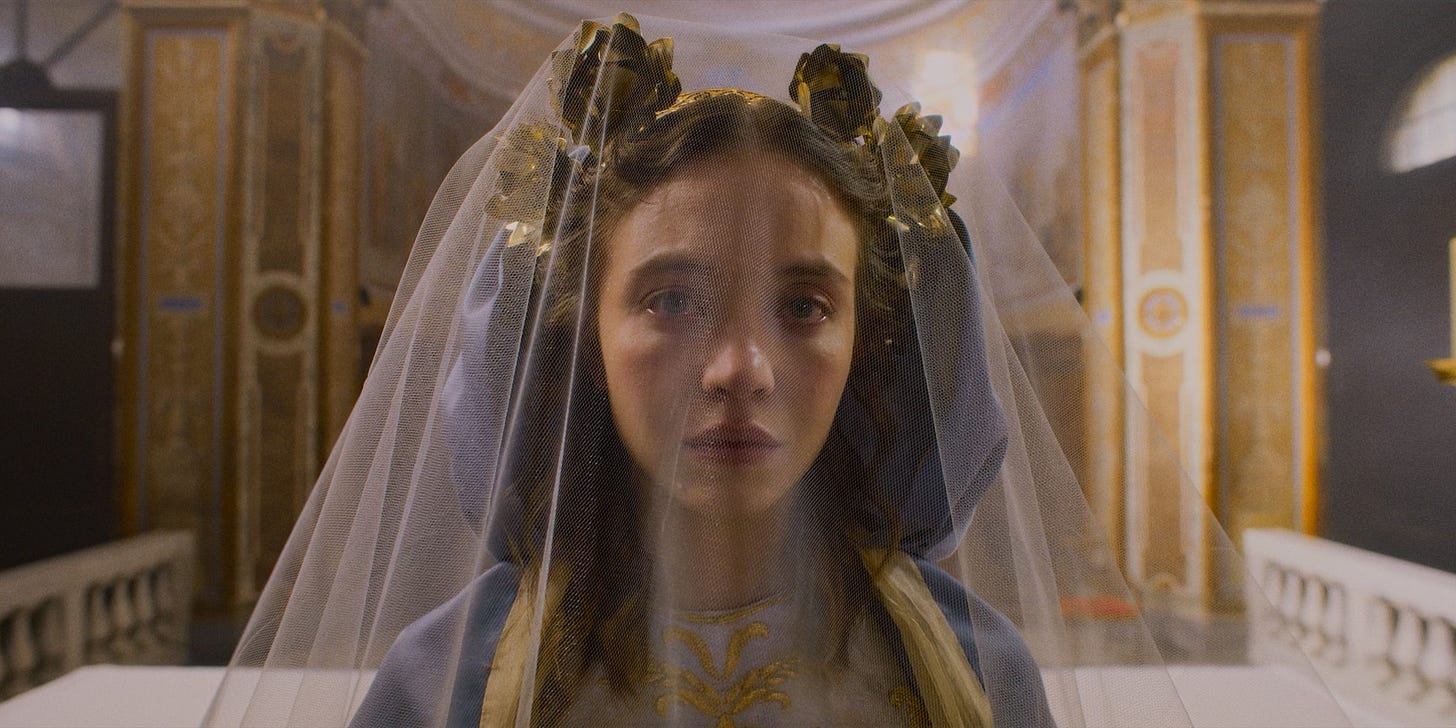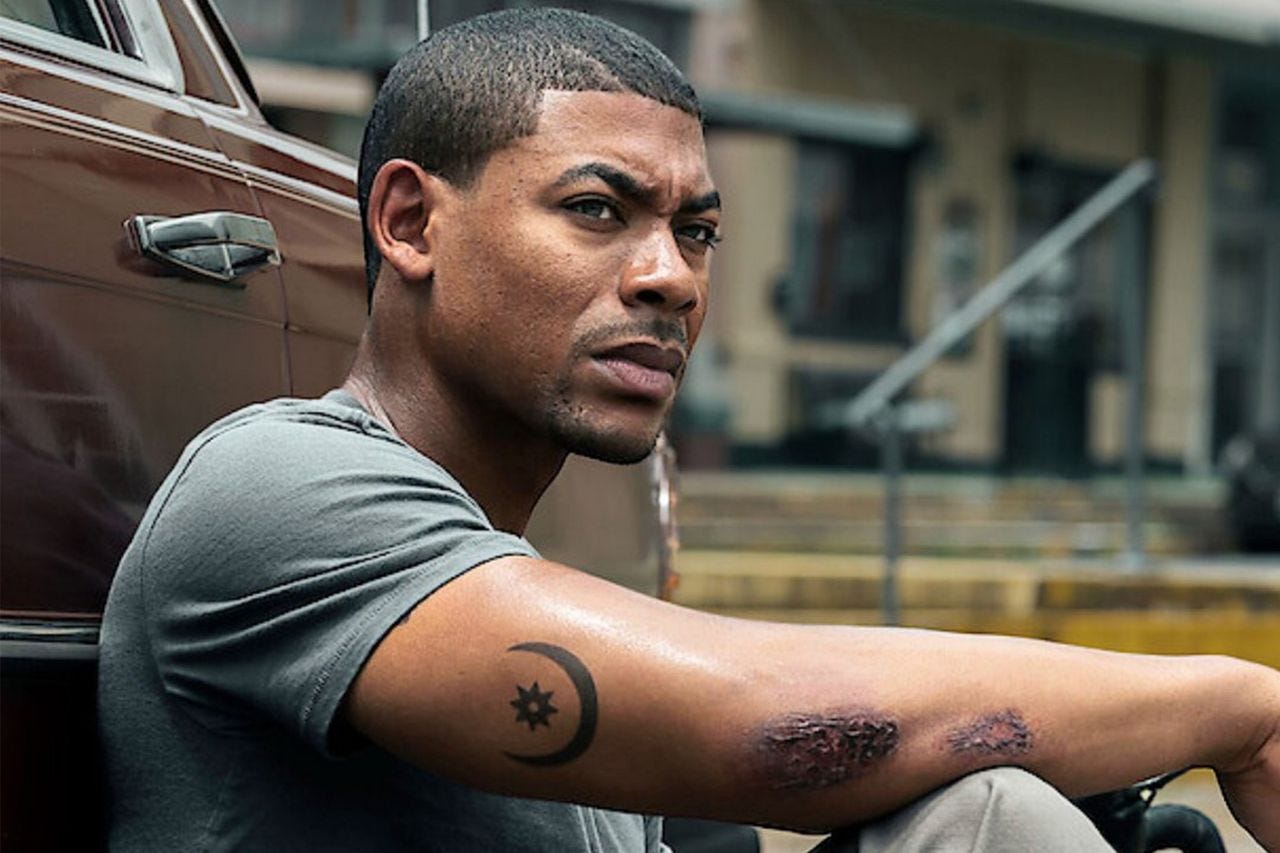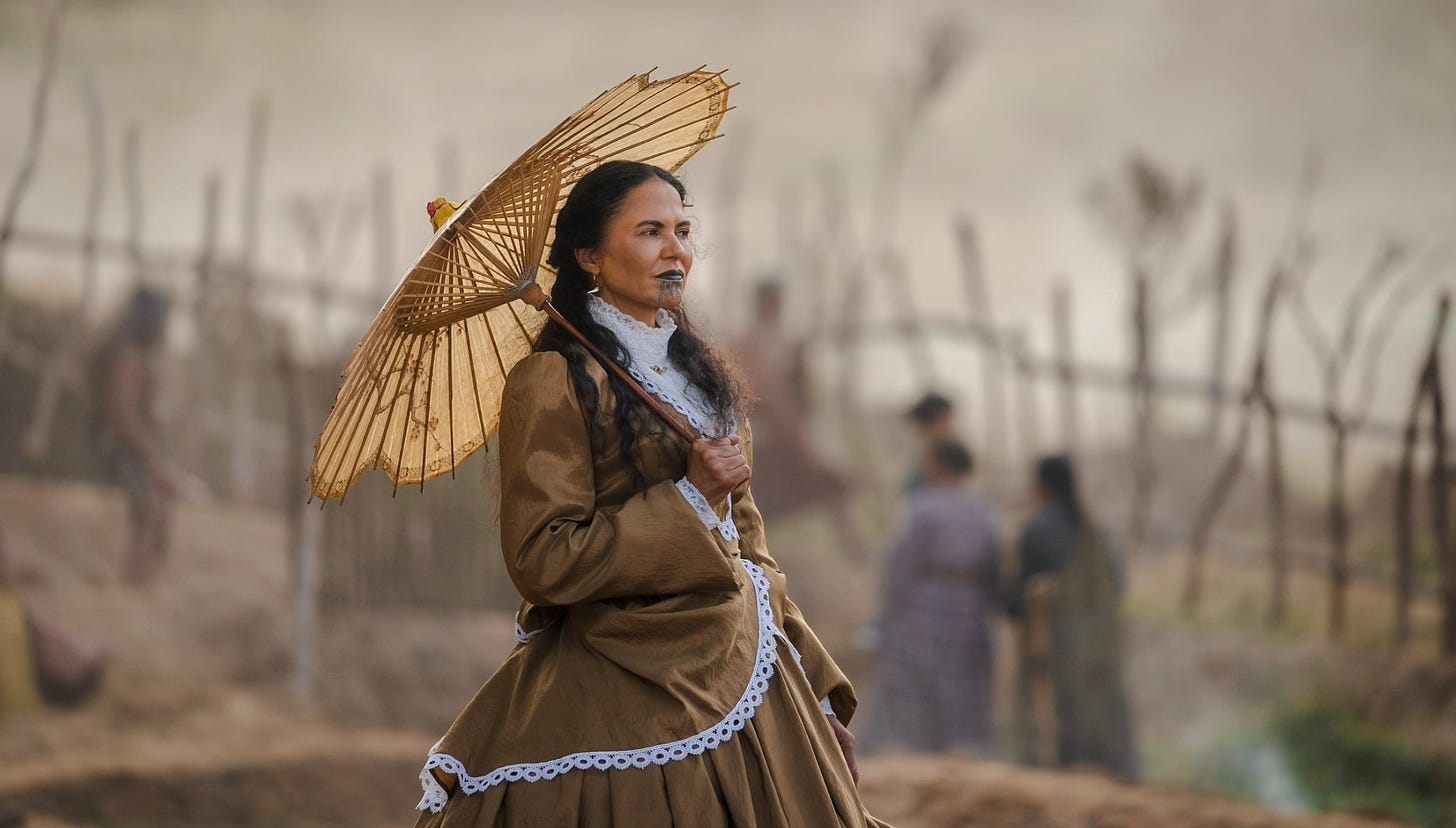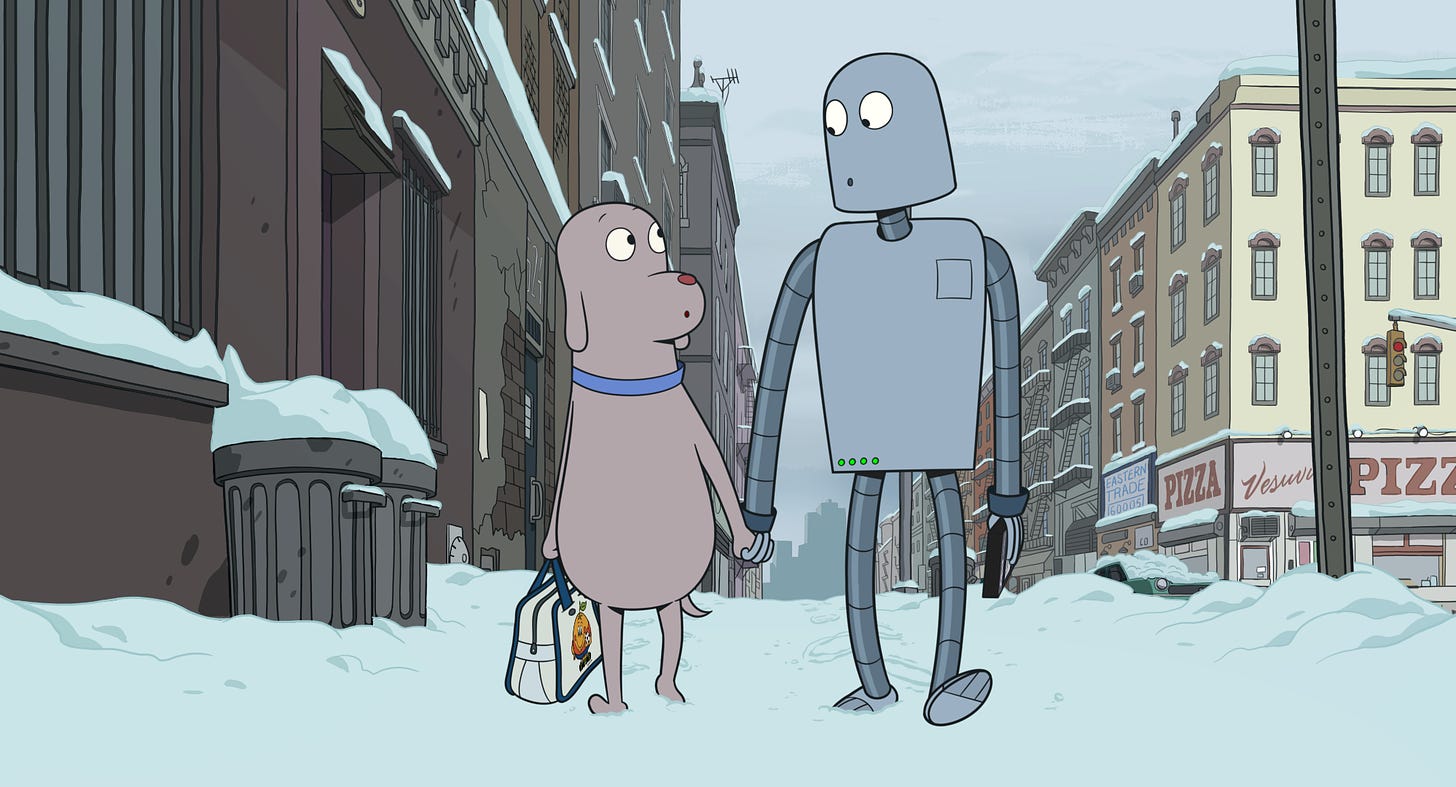I wrote this piece for RNZ only to discover that I misunderstood the brief and this isn’t what they wanted, so you get to read it instead. Apologies to non- Aotearoa based readers as this is very much a local summary.
By my calculation, I’ve seen over 180 new films this calendar year – 140 in cinemas and 40 on streamers – and even with that sort of volume there are plenty of films I’ve missed. It’s not possible to see everything in a festival, of course, but I’m finding that local mainstream release patterns are now unpredictable enough that new releases require military levels of planning to get to. Outside of the biggest blockbusters, release dates are now guidelines rather than rules, with some films getting ‘sneak’ previews for weeks before official launch dates. Session times for smaller films are also often limited – one a day in some cases – and in the last couple of months I’ve noticed some films are not being released in Wellington at all.
If it’s hard work finding the film you want, it is usually rewarding work. I haven’t seen too many outright clunkers in cinemas this year. In fact, I’ve enjoyed myself much more often than not.
The big trend this year has been the amount of support that audiences have shown for horror. It feels as if there was a new one released every week in 2024, many arriving on the back of canny release strategies that built up audience expectation and then proceeded to cash in. I’ll be honest, it’s not my favourite genre but I was impressed by the feminist fury of Immaculate, the goofy gore of Abigail and the genius casting of Hugh Grant in Heretic.
And has any film this year become part of the zeitgeist quite like Coralie Fargeat’s The Substance, winner of the Best Screenplay award at Cannes in May and prompting much fevered discussion ever since.
Last year many of the best films were made by octagenerians – Scorsese’s Killers of the Flower Moon, Loach’s The Old Oak and Miyazaki’s The Boy and the Heron – and the trend of ageing masters continued into 2024. 85-year-old Francis Ford Coppola’s Megalopolis wasn’t everybody’s cup of tea but afterwards you knew you’d seen something that no one else would dare to make. The box office disappointment of 79-year-old George Miller’s Furiosa: A Mad Max Saga still hurts as it was the best and smartest blockbuster of the year. And the cinematic crime of the year could well be Warner Bros. deciding that – despite making 40 films and nearly four billion dollars for them over 50 years as a director let alone a movie star – 94-year-old Clint Eastwood’s latest film Juror #2 didn’t deserve to be released in New Zealand cinemas. Scandalous.
But my favourite film of 2024 was by the almost-80 Wim Wenders. Perfect Days was about a meditative middle-aged cleaner of Tokyo public toilets and was a profound lesson in contentment. Almost the perfect film, you might say.
If Furiosa was the best and smartest blockbuster of the year, then Jason Statham vehicle The Beekeeper was the best and dumbest. In terms of action flicks, I also had a lot of time for Dev Patel’s Monkey Man which took a standard violent revenge plot and fuelled it with anger at the state of India’s Hindu nationalist political leadership.
2024 was also the year that Disney discovered that they didn’t have to drop their animated sequels directly to streaming and that they could bank a billion dollars each from cinema releases of Inside Out 2 (which I loved) and Moana 2 (which I only liked) and still have them drive subscriber numbers later. It’s taken a while for them to realise how much money they were leaving on the table, but normal service has been resumed now. Meanwhile, Netflix continues to see cinemas as competition and will only put a film in theatres if it has Oscar ambitions, and then only for the least possible time.
Due to scale, though, Netflix still manages to come up with the occasional high quality feature film (almost in spite of itself). Jeremy Saulnier’s Rebel Ridge was the best of them – a terrific action film with some grunty social context and a star-making performance from Aaron Pierre – and J.C. Bayona’s Society of the Snow used incredible physical effects to recreate the crash of a plane full of Uruguyan rugby players in the remote Andes mountains. Both of those would not have looked out of place in cinemas which is more than can be said of Richard Linklater’s overrated Hit Man (with its overrated star Glen Powell).
Our smaller film festivals went from strength to strength this year – the Italians, French, British & Irish and Terror-Fi all introduced consistently good films to loyal audiences. The New Zealand International Film Festival had some wobbly moments at the beginning of the year as it somehow contrived to lose most of its programming staff, but the eventual slimmed down selection of titles was high quality even if the event is still struggling to locate its identity compared with those that have a clearer mandate. I didn’t see as many of their selections as I should have but my favourite from the festival this year – now available as a digital rental – was the visceral yet transcendent Sasquatch Sunset in which a family of Bigfoots (Bigfeet?) make their lonely way around the North American wilderness.
2024 was also the year that I was forced to retire the word “newcomer” from my repertoire as I discovered that more and more of the actors that were new to me were, in fact, already huge stars on some Netflix series or other that I’d never seen.
Two New Zealand productions that found their moment – and should be required viewing for politicians starved of an understanding of Aotearoa’s history – were Lee Tamahori’s The Convert and Michael Johnathan’s Ka Whaiwhai Tonu – Struggle Without End. As the nation is dragged, somewhat unwillingly, into a debate about our founding document, these two films provide important context.
Apart from those two, my favourite local film of the year was Bookworm. Great family movies have a bit of weirdness about them as well as a good heart and Ant Timpson’s film about an odd-couple father and daughter hunting for a mythical beast in the Canterbury back country has plenty of both.
Also, a big shout out must go to local documentary Maurice and I that was launched at the Architecture & Design festival and went on to a triumphant self-distributed run across New Zealand. That’s now available on DocPlay if you missed it.
Of all the films that made over a million bucks at the New Zealand box office my favourites were the aforementioned Inside Out 2, Kingdom of the Planet of the Apes and Dune: Part Two. Special mention should go to Kon Krasinski’s IF which is the biggest film of 2024 that wasn’t a sequel, part of a franchise, or based on any pre-existing IP. It was the 27th highest grossing film of the year.
At the arthouse, if we still call it that, I need to celebrate Todd Haynes’ confounding May December, heartbreaking All of Us Strangers, whimsical Robot Dreams and the titanic achievement of The Zone of Interest.
I’ve tried to give myself as much time as possible to produce this list of what I’ve liked but there’s still a bunch of (potentially) great films due to arrive for the Christmas holidays. I have seen Sean Baker’s Palme d’Or winner Anora which is a vulgar hoot with a big heart and a performance from Mikey Madison which blows every other performance I’ve seen this year off the screen.
In prepping this, I took a look at a few international summaries of the year and was dismayed – as I always am – at how few of the world’s best made it into our cinemas this year, and how few are on the schedule to arrive in 2025. If I have time before tomorrow, I’ll produce a list of films that were released overseas this year that are missing in action for Aotearoa.
Now, if you’ll excuse me, I have to and write up an actual 2024 top ten list for RNZ.

